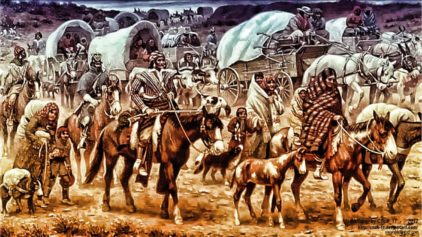A ruling handed down by the U.S. Court of Appeal in the District of Columbia will allow the descendants of slaves once owned by the Cherokee Nation to proceed with lawsuits to reclaim their official membership in the tribe. The descendants of those slaves are known as Cherokee Freedmen, and for decades they have battled against measures that would deny their tribal membership. The federal court’s ruling grants the Freedmen the ability to sue Cherokee Nation Principle Chief Bill John Baker directly, overturning a previous ruling from a lower court.
“Applying the precedents that permit suits against government officials in their capacities, we conclude that this suit may proceed against the principal chief in his official capacity, without the Cherokee Nation itself as a party,” the decision read.
Recent amendments removed the rights of Cherokee Freedmen whose ancestors were not listed as citizens as blood on the Dawes Commission Rolls, regardless of their heritage. The Dawes Rolls were enacted in the early part of the 20th century, as a method of documentation, and identified members of the nation under categories including Freedmen and Citizens by Blood. A century later, the list is being used as grounds for exclusion, and people who have ancestors of both Freedmen and Cherokee blood have lost their rights, including the right to vote.
“This is no different than the sort of thing that was going on 50 or 60 years ago, when states said they had the right to keep black folks from using the library in Mississippi and Alabama,” Freedman Marilyn Vann told the Associated Press. “We have our rights, and we are willing to fight to the end.”
Almost 3,000 Freedmen lost their tribal membership as a result of a 2007 amendment to the Cherokee Nation’s constitution. Members of the Congressional Black Caucus have spoken out and taken legislative action against the tribe as a result of the exclusion. In 2007 U.S. Rep. Diane Watson proposed a bill that would deny the Cherokee Nation federal recognition and funding if the 1866 Treaty that gave Freedmen trial membership was not honored.
Cherokee Nation Attorney General Todd Hembree stated the tribe was working as its own sovereign nation in deciding who was granted membership, and that the exclusion of Freedmen was not racially motivated.
“It’s not a race-based situation. It is an identity,” he told the Associated Press. “It’s not asking too much that in order to be a citizen of an Indian tribe, that you be Indian.”


